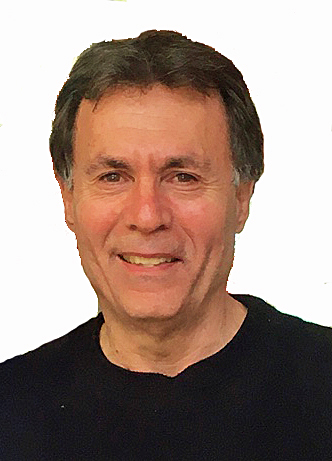Local News
These days a single complaint can lead to silencing pro-Israel voices

By BERNIE BELLAN As the war in Gaza drags on Jews are finding themselves coming under regular threats in a myriad of locations around the world.
Every day seems to bring a new report – either of pro-Palestinian protesters disrupting an event or of actual clashes between pro-Palestinians and pro-Israelis.
Just this past week we heard about pro-Palestinian protesters in Toronto forcing the cancellation of a dinner on March 2 at the Art Gallery of Ontario where Prime Minister Trudeau was supposed to have hosted an event for visiting Italian Prime Minister Giorgia Meloni.
According to the Globe & Mail, “The event was called off abruptly after several hundred pro-Palestinian protesters gathered outside the venue, blocking doorways and making it difficult for guests to enter.”
Then, on the evening of March 4 – this time in Montreal, pro-Palestinian protesters blocked the main entrance to the Jewish Federation building in that city – trapping employees inside, and forcing them to escape through a back entrance.
As a result of that event, according to an article written by Judy Maltz in Haaretz, “A number of key Jewish organizations and institutions in Montreal have obtained a court injunction that prevents anti-Israel groups from holding protests outside their premises.”
Those are just two of the most recent events that followed upon other similar events where pro-Palestinian protesters have engaged in threatening behaviour.
There has been a constant flow of reports of Jewish students being harassed, often physically threatened – both on university campuses and high schools throughout the world, even in younger grades, as early as Grade Two in some cases.
Although I have written previously that Winnipeg Jews shouldn’t think that the level of danger for Jews is as high in our own community as it certainly appears to be in cities such as Toronto or Montreal, anyone following reports of Jews being harassed – and occasionally physically attacked in cities around the world, can be forgiven for wondering about the possibility of that also occurring in Winnipeg.
It’s for that reason that I chose to focus an article on the event at the University of Manitoba on February 26 that led to the banning of a pro-Israel organization known as Students Supporting Israel.
Regardless what the guest speaker at that event may have had to say about Islam, the notion that the University of Manitoba Students Union was quick to suspend that Jewish organization says volumes about where we’re at these days in terms of Jews being put on the defensive.
In my article about the event and the subsequent suspension of Students Supporting Israel by UMSU I referred to something called a “trigger warning” – without going into any detail what a trigger warning actually is. Here’s how the Oxford Dictionary defines trigger warning: “A statement at the start of a piece of writing, video, etc., alerting the reader or viewer to the fact that it contains potentially distressing material (often used to introduce a description of such content).”
While it may be totally acceptable for a Muslim student to claim that they have been upset by something said at an event – such as the event held at the U of M, the corollary certainly doesn’t hold for Jewish students.
Thus, when a group of eight University of Winnipeg teachers held that notorious hatefest on Israeli “imperialism, colonialism, and genocide” on November 24, and many individuals – both from within and without the Jewish community here, complained that holding such an event would be extremely distressing for members of the Jewish community, especially students at the U of W, did anyone from the U of W administration take steps to have that event cancelled?
Of course not. When it comes to moving to protect the rights of university students to feel safe on campuses, it’s a one-way street: A Muslim student at the U of M complained that she felt unsafe as a result of comments made on February 26 by a speaker at the university who himself was a Muslim – and UMSU took immediate steps in reaction to that complaint in what I would hold, any reasonable person would argue was a totally unjustified overreaction.
As the CBC report of what happened notes, Bassim Eid, the speaker at the event, made some critical comments about Islam, including that “When it comes to ideology, the Muslims are blind,” and the ideology of Muslims is ‘a major problem,’ saying they aren’t ready for change.”
But, “Belkis Elmoudi, a Muslim student at the university who attended the event, says she couldn’t believe what she was hearing.
” ‘I knew I had to get out of there, because I did not feel safe,’ she told CBC News on Thursday” (February 29).
” ‘I mean not only were those comments made, [but] no one stood up and said anything, so it just made me feel very isolated, alone and scared.’ “
Omigod – someone says something negative about Muslims at an event sponsored by a pro-Israel organization and, whether or not those comments were justifiable, the pro-Israel organization is suspended from being allowed to be active on campus.
We know that the pendulum has swung so far in one direction that anyone saying they were offended by a comment made by someone who was pro-Israeli can expect to have their complaint acted upon almost immediately.
Yet, I am not advocating that Jewish students should also be able to suppress in advance any comments that they would regard as threatening their safety. Tolerance of ideas that we may find uncomfortable has long been an intrinsic element of what those of us who consider ourselves liberal would defend.
But, as the atmosphere surrounding discussion of Israel’s war in Gaza has become poisonous for anyone wanting to defend Israel, intimidation tactics of the type used by Belkis Elmondi – along with the strong and immediate support she received from the president of UMSU, is only likely to be repeated any time that someone tries to mount a defence of Israel on a university campus anywhere there are Muslim students.
One of the great ironies of this entire conundrum is that a great many Jews in the diaspora are themselves deeply critical of Israeli government policies, including what’s happening in Gaza, but because of the virulence – often accompanied by threats of physical violence and actual acts of physical violence, we keep the level of criticism of Israel relatively muted.
Instead we talk among ourselves at how badly Israel is doing in the court of public opinion – and then react with dismay when anti-Israel demonstrators engage in the worst sort of intimidation tactics.
As diaspora Jews, we’re sort of shell shocked by what we’re seeing – and when one student’s complaint gets an entire organization suspended, we simply shake our heads and wonder what’s next when it comes to intimidating pro-Israel supporters?
Local News
Thank you to the community from the Chesed Shel Emes

We’re delighted to share a major milestone in our Capital Campaign, “Building on our Tradition.” Launched in November 2018, this campaign aimed to replace our outdated facility with a modern space tailored to our unique needs. Our new building is designed with ritual at its core, featuring ample preparation space, Shomer space, and storage, creating a warm and welcoming environment for our community during times of need.
We’re grateful to the nearly 1,000 generous donors who contributed over $4 million towards our new facility. A $750,000 mortgage will be retired in November 2025, completing this monumental project in just seven years.
We’re also thrilled to announce that our Chesed Shel Emes Endowment Fund has grown tenfold, from $15,000 to $150,000, thanks to you, the Jewish Foundation of Manitoba’s FundMatch program, and Million Dollar Match initiative in 2024. Our fund helps ensure that everyone can have a dignified Jewish funeral regardless of financial need.
As we look to the future, our goal remains to ensure the Chevra Kadisha continues to serve our community for generations to come. Our focus now shifts to replenishing our savings account and growing our JFM Endowment fund.
We’re deeply grateful for your support over the past several years.
It’s our privilege to serve our community with care and compassion.
With sincere appreciation,
Campaign cabinet: Hillel Kravetsky, Gerry Pritchard, Stuart Pudavick,
Jack Solomon, and Rena Boroditsky
Murray S. Greenfield, President
Local News
Winnipeg Beach Synagogue about to celebrate 75th anniversary

By BERNIE BELLAN (July 13) In 1950 a group of cottage owners at Winnipeg Beach took it upon themselves to relocate a one-room schoolhouse that was in the Beausejour area to Winnipeg Beach where it became the beach synagogue at the corner of Hazel and Grove.
There it stayed until 1998 when it was moved to its current location at Camp Massad.
On August 2nd members of the synagogue will be holding a 75th anniversary celebration.

As part of the celebration anyone who is a descendant or relative of any of the original members of the first executive committee (as seen in the photo here) is invited to attend the synagogue that morning.
If you are a relative please contact Abe Borzykowski at wpgbeachshule@shaw.ca or aborzykowski@shaw.ca to let Abe know you might be attending or for more information about the 75th anniversary celebration.
We will soon be publishing a story about the history of the beach synagogue, which is something I’ve been writing about for over 25 years.
Local News
Vickar Family cuts ribbon on new Tova Vickar and Family Childcare Centre

By MYRON LOVE In the words of Larry Vickar, the Shaarey Zedek’s successful Dor V’ Dor Campaign “is not only a renewal of the synagogue but truly a renewal movement of Jewish life in our community.”An integral part of that renewal movement was the creation of a daycare centre within the expanded synagogue. On Monday, June 23, Larry and Tova Vickar cut the ribbon, thereby officially opening the Tova Vickar and Family Childcare Centre in the presence of 100 of their family members, friends and other supporters of the project.
The short program preceding the morning ribbon-cutting began with a continental breakfast followed by a welcome by both Fanny Levy, Shaarey Zedek’s Board President, and Executive Director Dr. Rena Secter Elbaze. In Elbaze’s remarks, she noted that Larry and Tova wanted their family (including son Stephen and family, who flew in from Florida) and friends at the event to celebrate the opening of the Tova Vickar and Family Childcare Centre, “not because of the accolades, but because, as Larry put it, he hopes that their investment in the congregation will inspire others to do the same.”
“When Larry and I spoke about what this gift meant to him and the message he wanted people to take away,” she continued, “I couldn’t help but connect it to the teachings of Reb Zalman Schachter-Shalomi whose book – Age-ing to Sage-ing – changes the whole way we look at the concept of ageing and basing it on our ancestral teachings.”
She explained that his concept of “Sage-ing” is based on three key ideas – Discover your meaning and purpose; accept our mortality and think about the legacy you want to leave.
“Larry spoke about these exact concepts when we met,” she said.
Elbaze also noted the presence of Shaarey Zedek’s newly-arrived senior Rabbi Carnie Rose, former Rabbi Alan Green, and area MLAs Mike Moroz and Carla Compton.
Larry Vickar expressed his great appreciation for all those in attendance. “Tova and I are deeply moved to stand here with you today for this important milestone in our community”, he said. “We are grateful to be surrounded by all of you, the people we care about, our family and friends… you who have touched our lives and played some part in our journey.”
